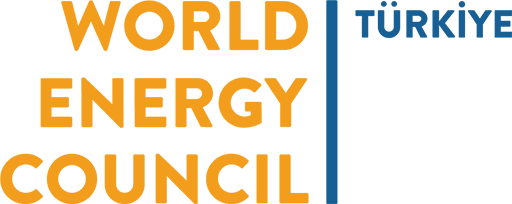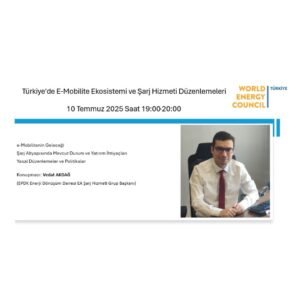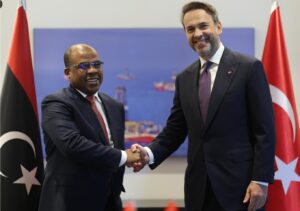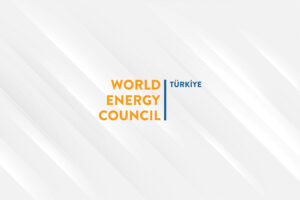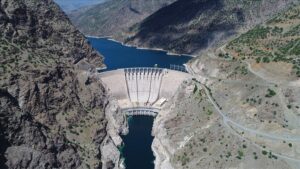World Energy Pulse Survey Reveals National Security Interests And Green Technology Arms Race Considered Greatest Obstacles To Energy Transition Progress
10 May 2023: The World Energy Council has published results from its latest World Energy Pulse, which polled more than 700 energy leaders and decisionmakers. The resulting data set provides the most up-to-date snapshot of current attitudes towards progress on energy transition based on responses from across the global energy community.
As the energy sector continues to be impacted by the aftershocks from COVID-19, the ongoing war in Ukraine, and an international scramble to respond to President Biden’s Inflation Reduction Act, the World Energy Pulse shows that almost half (46%) of respondents cite national self-interests and the risk of a green technology arms race as the greatest obstacles to progressing orderly, clean and just energy transitions.
National interests continue to dominate as 59% of respondents agree that energy independence is critical to securing their countries’ climate-energy-security agendas. However, this ‘me-first’ sentiment is challenged with the overwhelming (84%) acceptance that energy interdependence is the new global reality.
In the strongest sentiment within the survey, 86% of respondents said that effectively managing choices and trade-offs using the World Energy Trilemma framework – energy security, affordability, and sustainability – is the best approach to avoiding disorderly transitions and addressing the new and emerging challenges of climate resilient energy for sustainable development. The Trilemma framework offers countries, regions and cities a way to track, benchmark, and guide performance on managing clean, just and inclusive energy transitions. The framework will also guide many of the discussions at the upcoming World Energy Congress, taking place in Rotterdam in April 2024, which will convene 7,000 visionary world energy leaders and thousands more energy ecosystem shapers to share new ideas, solutions and achievements in redesigning climate resilient energy for billions of better lives and a healthy planet.
Dr Angela Wilkinson, Secretary General and CEO at the World Energy Council, said:
“Hot on the heels of launching the countdown to the 26th World Energy Congress, we’re pleased to release our latest World Energy Pulse as we continue to equip our members and the wider energy transition community with grounded, real-time, data-led insights.
“The results speak for themselves – the world energy system is no longer fit for purpose. Throwing more money and technology at complex system change is not enough to ensure faster or fairer energy transitions. Inclusive implementation is essential – mobilising, enabling and convening more people, diverse communities and different industries, and understanding place-based realities. Addressing this complex challenge requires a humbler leadership approach and active learning. Our call to action on humanising energy is key to making energy transitions happen in a new context of low trust, increasing fragmentation and polarisation, and new demands for energy justice.
“These results reiterate the important role of the World Energy Council and World Energy Congress in providing a trustworthy and neutral platform for unheard voices in energy and catalysing more effective collaboration across the entire energy ecosystem to ensure a sustainable energy future for all.”
64% of respondents continue to be concerned by the pace and progress of energy transitions, nearly double those who expressed similar concerns in the Council’s Pulse survey last year.
Leaders are particularly concerned that insufficient action is being driven from the bottom up, with 35% of respondents stating that individuals and communities should be empowered to lead transformations. 43% see challenges around ‘affordability and modern energy access’ as the most concerning aspects of ensuring a fair energy system.
The World Energy Pulse is the World Energy Council’s annual survey of global energy leaders from 77 countries. As well as representing a temperature check on trends felt across the energy community, the survey also offers more granular perspectives from both regional and sector perspectives.
Other survey highlights include:
- The focus (48%) on decarbonisation technology far outpaces the attention being paid to complementary or adaptation solutions, such as reuse (4%), remove (4%) and recycle (3%). The latter three are critical to ensuring lasting structural changes are made to the existing energy systems.
- Majority (62%) agree that basic access to clean energy is not enough, and that access to more quality energy for sustainable development is a pressing need.
- Aligning the financial system with sustainable development goals is recognised (39%) as being the greatest critical implementation gap to accelerate energy transitions.
- Uncertainty around market volatility has significantly reduced since the beginning of the COVID-19 pandemic, with only 8% of respondents prioritising this issue.
- Respondents from Africa cited community empowerment and workforce transition as being important to progressing energy transitions.
For media inquiries, please contact the Council’s media relations team at FTI Consulting: worldenergycouncil@fticonsulting.com or +44 (0)20 3727 1000
About the World Energy Council
The World Energy Council is the world’s oldest independent and impartial community of energy leaders and practitioners. We represent all energy interests. Through our Humanising Energy vision, we are working to involve more people and communities in accelerating clean and just energy transitions in all world regions.
Formed in 1923, the Council convenes diverse energy interests, with over 3,000 member organisations in around 90 countries drawn from governments, private and state corporations, academia and civil society. We effectively collaborate on breakthrough impact programmes and inform local, regional and global energy agendas in support of our enduring mission: to promote the sustainable use and supply of energy for the benefit of all people. Further details at www.worldenergy.org and @WECouncil
About the World Energy Congress
For 100 years, the World Energy Congress has convened the cooperative power of the world energy community to turn inspiration into action. As the global flagship platform of the World Energy Council, the World Energy Congress reaches across the public, private and civic sectors to connect and inspire leaders and practitioners from within and beyond energy.
Hosted in cities across the world since 1924, the Congress is a unique space for the world energy community to address challenges of energy for people and planet, catalyse new co-operations and build multiple better pathways for global energy transitions.
With around 18,000 total attendees including 7,000 delegates, 70 Ministers and a sizeable media contingent, the World Energy Congress is a globally recognised, world-class event that welcomes leaders from all corners of the world as they come together to enable solutions and deliver impact in an era of energy for people and planet. Ministers, C-suite executives, NGOs, experts, academics, and young entrepreneurs – the Congress hosts the full spectrum of the energy sector and its value chain. The 26th World Energy Congress is now open to book participation as a delegate, exhibitor or exhibition visitor. You may also register your interest to be a sponsor or a media partner. Further information at World Energy Congress and @WECongress.
